Thank you very much for your interest in participating to the IDRiM Virtual Workshop!
Please note that, the following is a list of confirmed session chairs. Other scientists and experts may be added to the list as they are confirmed. Also, sessions may be merged, particularly if topics are similar.
All sessions are subject to a limit of four presentations per session, and a minimum of three. Sessions will be 90-120 min. The time and time zone of the session will be decided based on the preferences of the session chair(s).
The full list of session outlines will be available here as soon as it is finalised. Please continue to check regularly this page to stay updated with the interesting topical session presentations.
List of Confirmed Chairs and Tentative Session Topics / Titles*
| Session Number | Session Chair(s) | Session Topics / Titles |
|---|---|---|
| 1 | Irasema Alcantara Ayala (Mexico) | COVID-19: Insights through the lens of IDRiM |
| 2 ** | Ilan Chabay (USA, Germany) and Norio Okada (Japan) | Participatory creative design to address complex challenges of risk governance –For this session, participants are not asked to submit abstracts, but to send interesting topics or potential speakers regarding the issue |
| 3 | Ana Maria Cruz (Japan) and Elisabeth Krausmann (Italy) | Natechs, Natech risk management, Natech case studies, Natech regulatory landscape, risk communication |
| 4 | Andrew Collins (UK) | Action Data and Epidemic Risk |
| 5 | Peijun Shi (China) | Changing risk landscape of natural disasters in the changing global environment |
| 6 | Mohsen Ghafory-Ashtiany (Iran) | a. How to close the gap between science and policy toward effective implementation; Disaster Insurance |
| 7 | Mohsen Ghafory-Ashtiany (Iran) | b. Risk management and risk reduction in developing countries: Why DRR policies and programs do not really get implemented. Case Study Reports |
| 8 | James Goltz (USA) and Katsuya Yamori (Japan) | a. Conceptions of Disaster and the Corona Virus: What the Pandemic is Teaching Us |
| 9 | James Goltz (USA) and Asthildur Elva Bernhardsdottir (Iceland) | b. Risk and culture |
| 10 | Guoyi Han (Sweden) | Risk and development: A dialogue on transforming development and disaster risk |
| 11 | Stefan Hochrainer-Stigler (Austria) | Systemic risk, compound events and cascading effects |
| 12 | Bijay Anand Misra (India) | Strengthening Participatory Adaptive Governance at Local level: Evidence based Lessons on Natural and Social Risks |
| 13 | Ilan Noy (New Zealand) | a. Economics of COVID-19 |
| 14 | Ilan Noy (New Zealand) | b. Economic Policy in the times of COVID-19 |
| 15 | Norio Okada (Japan) | Participatory risk governance |
| 16 | Ortwin Renn (Germany) | a. Covid-19, Systemic risks and multi-governance |
| 17 | Ortwin Renn (Germany) | b. Psychological responses to pandemics, lessons learned from international experiences |
| 18 | Adam Rose (USA) | Economic consequences of disasters; economic resilience to disasters |
| 19 | Rajib Shaw (Japan) | Innovation and incubation in disaster risk reduction |
| 20 | William Siembieda (USA) | Implementation science: functional recovery, addressing slowly developing catastrophic events, complexity analysis, the integration of systemic risk in DDR practice, understanding how to characterise triggers, and improving how to characterise expected outcomes |
| 21 | Hirokazu Tatano (Japan) | Economic impact assessment |
| 22 | Gisela Wachinger (Germany) and Yoko Matsuda (Japan) | Involving stakeholders to risk governance |
| 23 | Yoshiyuki Yama (Japan) and Jong-il Na (Korea) | Community and Narrative based Disaster Risk Management |
| 24 | Katsuya Yamori (Japan) | Disaster education, community-based disaster management, disaster risk communication |
| 25 | Muneta Yokomatsu (Japan) | Social network, economic growth |
| 26 | Emmanuel Garnier (France) | Historical perspectives on disaster memory |
| 27 | David Nguyen (Japan) and Junko Mochizuki (Austria) | Integrating disaster management practices and experiences in tourism |
| 28 | Tetsuya Takemi (Japan) | Understanding meteorological hazards and risks for disaster risk reduction under climate change |
| 29 ** | Subhajyoti Samaddar (Japan), Hideyuki Shiroshita (Japan), Yoshihiro Okumura (Japan), Ravindra Jayaratne (UK) and Kaori Kitagawa (UK) | What is your ‘IDRiM’ – what is your experience of or idea for a collaborative project? –For this session, participants are not asked to submit abstracts, but to send interesting topics or potential speakers regarding the issue |
| 30 | Eiichi Nakakita (Japan) | Perspectives on disaster related climate change impact assessment and adaptation |
| 31 ** | Yoko Matsuda (Japan) and Junko Mochizuki (Austria) | Women in disaster science: A networking session –For this session, participants are not asked to submit abstracts, but to send interesting topics or potential speakers regarding the issue |
**Note 2: For Sessions 2, 29 and 31, participants are not asked to submit abstracts, but to send interesting topics or potential speakers. Please write your expectations, requests for topics or speakers instead of submitting your research abstract via the online registration system.




